CD Reviews
Friday, May 25, 2012
CD Reviews / Concert Announcement Will Leviathan violinist assert herself?
Posted By Perry Tannenbaum on Fri, May 25, 2012 at 10:44 AM
Over the past three years, we've seen violinist Livia Sohn perform each season during the lunchtime Bank of America Chamber Music series at Spoleto Festival USA in Charleston, S.C. Most notably, Sohn played the Kreutzer Sonata, one of Beethoven's supreme masterworks, during the final weekend last year, signaling she was ready to become more prominent in the constellation of instrumental stars who play at the Dock Street Theatre.
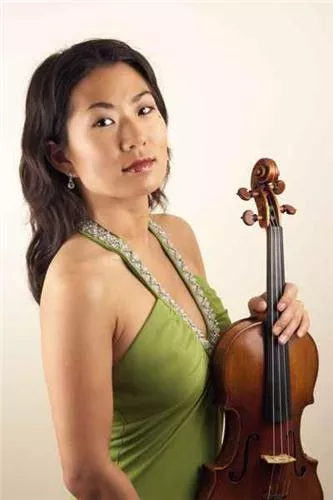
This spring, she returns to Spoleto on the heels of her first CD as a member of Trio Latitude 41, releasing Schubert's Piano Trio #2 and Notturno on the Eloquentia label. After receiving the new CD, I sent word back through the label's publicity agent that Sohn needs to know that her name means Leviathan in Hebrew - so I expect her to become more assertive the next time she performs at Spoleto, held in Charleston, S.C., between May 25 and June 10, 2012.
Wednesday, April 25, 2012
CD Reviews CD review: Jack White's Blunderbuss
Posted By Jeff Hahne on Wed, Apr 25, 2012 at 4:47 PM
Jack White
Blunderbuss
Third Man; Release date: April 24, 2012
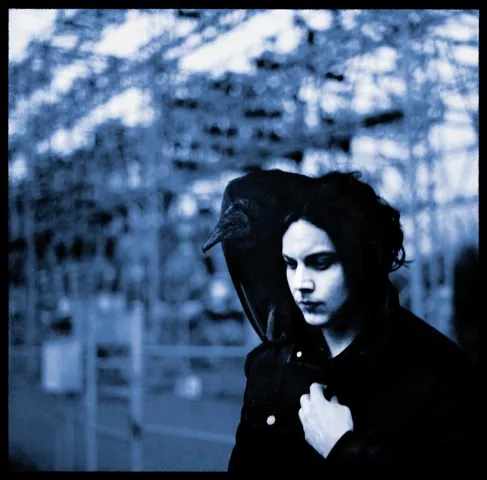
Has any album in recent memory been as hotly anticipated as Jack White's solo debut? Even before he announced the end of the White Stripes, fans were clamoring for new music from their pale prince.
There are hints of every side of White on Blunderbuss - White Stripes-style rock vibes on "Sixteen Saltines" and his country foundation shows on the title track - in addition to plenty of other '60s-rock bites and roots music rhythms on the album's 13 tracks.
But let's get one thing clear. This isn't going to satisfy the White Stripes fans. It won't satiate the Dead Weather or Raconteurs followers either. One song here or there might, but it's not enough.
It's the jazz-like tempo of opening track, "Missing Pieces" that lets you know it's a different side of White he's sharing, until his vocals ring in to offer the listener a hint of familiarity.
Monday, January 30, 2012
CD Reviews / New Releases Jack White releases first solo single
Posted By Jeff Hahne on Mon, Jan 30, 2012 at 2:12 PM
Jack White has released the first song from his upcoming solo album, Blunderbuss, due out on April 24. You can hear "Love Interruption" on White's website here.
Most reviews so far are ho-hum, with many people on Facebook commenting that it's "boring" or "background music". To me, it sounds too much like the riffs are copied instead of offering a good taste of the creative stuff White is so known for.
The opening riff sounds a little too close to the opening chimes of Dusty Springfield's "Son of a Preacher Man."
Then you have a riff behind White's vocals in the verse that sounds too close to the rhythm of "Vehicle" by The Ides of March.
Meanwhile, the male/female singing combination reminds me of The Civil Wars, well, maybe a poor man's Civil Wars without the strength of its harmonies.
I'm curious to see how the rest of the album sounds once it's made available, but early impressions will have a lot of people clamoring for a White Stripes reunion sooner rather than later.
Monday, January 9, 2012
CD Reviews / DVD Review CD/DVD review: Cage the Elephant
Posted By Jeff Hahne on Mon, Jan 9, 2012 at 11:28 AM
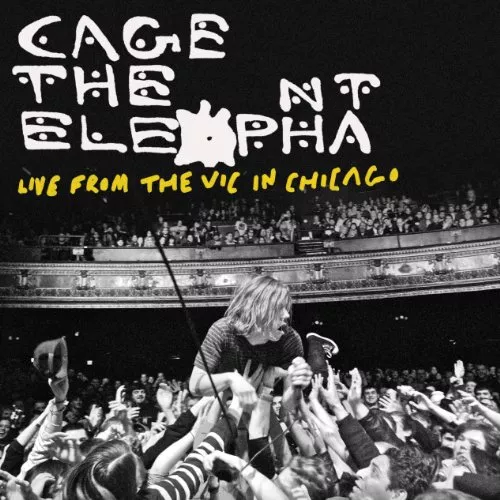
Cage the Elephant
Live from the Vic in Chicago
RCA; Release date: Jan. 3, 2012
"Ain't No Rest for the Wicked" was just starting to swarm the airwaves in 2009 when Cage the Elephant played an early Sunday set at Bonnaroo in Manchester, Tenn. It was the first set I caught that day — I remember standing in the photo pit, photographer Danny Clinch standing next to me with a grin on his face, as singer Matthew Shultz and his red spandex body suit screamed, danced and bounced around the stage. It was the most energetic and intense live show I saw that weekend.
Fast forward to February of 2010 when Cage the Elephant made its Charlotte debut with a sold-out concert at Amos' Southend. Shultz again was the focus of attention as he ended the show hovering above the crowd, surfing while singing.
While the band's two studio efforts — 2008's self-titled debut and 2011's Thank You, Happy Birthday —Â aren't exactly polished, it's the band's live shows that truly show its strength and raw qualities. Finally capturing that potency is the new CD/DVD release, Live from the Vic in Chicago.
Friday, January 6, 2012
CD Reviews Best jazz CDs of 2011
Posted By Perry Tannenbaum on Fri, Jan 6, 2012 at 3:06 PM
Instead of doing a best in jazz and classical for 2011, I’ve segregated and done two top fives. Considering that the two genres occasionally overlap, it’s not the soundest decision, but this is 2012 and I’m a blogger, for crissake. It’s about time I started flouting logic and reason like cool bloggers s’posed to do.
Here’s your link to my classical picks after you finish with these here:
Charles Lloyd/Maria Farantouri — Athens Concert (ECM) — The top contemporary quartet in jazz, fronted by Lloyd on sax and flute with Jason Moran at the keyboard, encounters Greek diva Farantouri, plus the odd lyra tossed in for good measure. What results isn’t a feel-good detour into folksy world music but a passionate synthesis of wailing post-bop jazz and soulful torch singing at the birthplace of drama, in the shadow of the Acropolis. Lloyd is as good as ever and Farantouri is the vocalist Morgana King wished she could be.
Tuesday, January 3, 2012
CD Reviews Perry's top classical CDs of 2011
Posted By Perry Tannenbaum on Tue, Jan 3, 2012 at 11:23 AM
I receive more than a few classical CDs every year — more than I could ever hope to adequately praise or pan — so an end-of-the-year listing is a great way for me to play catch-up. And for all loyal Loaf readers, particularly those of you engaged in the religious ceremony of exchanging holiday gifts, you can now skip merrily to the bottom line. Without any specious pontificating on the plights of classical music and the recording industry, here are my best for 2011:
Brahms: Haydn Variations, Rhapsodies, Piano Pieces — Murray Perahia (Sony) — After cementing his reputation in the Mozart concertos, Perahia’s voice has darkened over the years as he traversed the Beethoven concertos and began exploring the piano’s solo repertoire more intently. He seems to reach these Brahms pieces at the perfect moment, his phrasing as natural and right as ever, the touch still light and sensitive, delving effortlessly into the music’s fullest depths.
Copland: Quiet City — Christopher Brellochs and Paul Cohen, saxophones (Sono Luminus) — I’ve probably played this recording more often, with more pleasure, than any other classical or jazz recording I’ve acquired over the last year. Truth is, the music bridges the borderline between classical and jazz with its modern, syncopated rhythms and its emphasis on the sax. Brellochs plays an ultra-smooth alto sax on a world premiere of Aaron Copland’s Quiet City in its original quartet version. Cohen, who actually unearthed the Copland manuscript, plays alto on Leo Ornstein’s Ballade, tenor on Walter S. Hartley’s Lyric Suite, and soprano on Lawson Lunde’s Sonata for Soprano Saxophone and Piano — all of these recorded for the first time. Brellochs appears with his alto on all the lengthiest premieres, including Robert Aldridge’s Sound Moves Blues, Seymour Barab’s Suite for Trumpet, Alto Saxophone and Piano, and the Copland. Donald Batchelder on trumpet, Mitchell Kriegler on clarinets, and Allison Brewster Franzetti at the keyboard are the other notable contributors to this tasty chamber music feast.
Bach: Concertos and Sinfonias for Oboe — Camerata Bern/Heinz Holliger (ECM) — Nonpareil oboist Holliger appears to be getting a second wind with his double reed of choice after slackening off on his instrumental recording in favor of his other gifts, composing and conducting. This new recording, on a label that has staunchly supported Holliger’s own compositions, shows us that the master isn’t even slightly rusty in his early seventies. On this bankable baroque repertoire, Holliger repays his supporters with wonderful readings, on oboe and oboe d’amore, of three concertos, supplemented by sinfonias plucked from two cantatas and the Easter Oratorio. Robust orchestral support from Camerata Bern, beautifully recorded.
Chopin Recital — Anne-Marie McDermott, piano (Bridge) — Anyone who has enjoyed McDermott’s lively performances at the lunchtime chamber music series at Spoleto Festival USA will no doubt be interested in giving this solo recording a listen. It’s a pretty nifty traversal of Chopin’s pianistic soundworld, offering a Barcarolle, seven Mazurkas, a Berceuse, a Ballade, and two Nocturnes before concluding with three opus 64 Waltzes. The sparkle and the enthusiasm are unmistakable, with a dreamy lyricism drenching the Nocturnes, and no want of authority in the Barcarolle and the Ballade No. 1.
Brahms: Ein Deutsches Requiem — Seraphic Fire (SFM) — It was a good year for Scott Allen Jarrett, the former director of Oratorio Singers newly promoted to the title of Charlotte Symphony’s Director of Choruses & Assistant Conductor. Somehow, I suspect Jarrett’s elevation may have been connected to his presence on this Grammy-nominated recording. You’ll be surprised to hear that he doesn’t lead the gorgeous Seraphic Fire chorus or the Professional Choral Institute (a joint venture of Seraphic and the University of South Florida). No, he’s on the album cover as one of the two piano accompanists in this very fresh “parlor” version of the more massive orchestral work of 1869. Although the English translation originally sung with this four-hand piano reduction has been lost, the arrangement is genuine Brahms — and a genuine revelation, ideally suited to home listening.
Image credit: Miller McCune
Friday, December 16, 2011
CD Reviews / DVD Review CD/DVD review: Peter Gabriel's New Blood
Posted By Jeff Hahne on Fri, Dec 16, 2011 at 1:37 PM

Peter Gabriel
New Blood CD/DVD
Real World; Release date: Oct. 2011
All too often, artists are offering reissues, remasterings, re-releases and anniversary editions of albums that might add a few B-sides but little else in the way of anything substantial. When I first heard that Peter Gabriel would be reworking some of his music, I didn't expect much as my initial thoughts were of remastered songs in some sort of greatest hits format. New Blood completely destroys any of those ideas.
Instead of taking the easy way out, Gabriel has re-imagined his music in the purest sense of the word. New Blood, a 14 track CD was released in October and followed by New Blood Live in London, a concert DVD of 22 songs in the same presentation.
On both, Gabriel is backed by an orchestra that brings new life to his music without the presence of a guitar, bass or drumkit. The orchestra enables not only new depth in the artistic vision of Gabriel, but intricate layering when appropriate.
Tuesday, October 18, 2011
CD Reviews CD review: Jane's Addiction's "The Great Escape Artist"
Posted By Jeff Hahne on Tue, Oct 18, 2011 at 2:25 PM
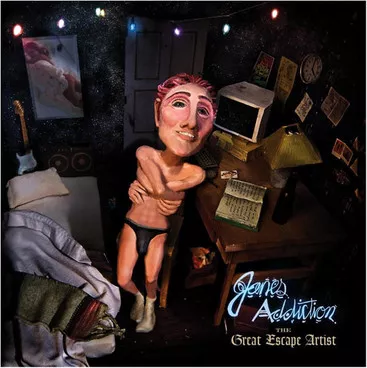
Jane's Addiction
The Great Escape Artist
Warner Bros., Oct. 29, 2011
Finally releasing their fourth studio album, Jane's Addiction hasn't been the most prolific band in the last few decades. It seems like they've spent more time changing up bass players than writing songs. The Great Escape Artist comes on the heels of 2008's reunion with the band's original lineup.
Bassist Eric Avery didn't last long once the band hit the studio, however. He was replaced by former Guns N Roses bassist Duff McKagan for six months before TV on the Radio's Dave Sitek finally took the job for the album's duration. (The current touring lineup features Chris Chaney.)
The result is an album of contemporary alt-rock showing the increasing maturity of the quartet. Gone is the drug-fueled spirit of the band, replaced by a smarter brand of musicianship.
Friday, October 14, 2011
CD Reviews CD review: Charles Lloyd and Maria Farantouri's "Athens Concert"
Posted By Perry Tannenbaum on Fri, Oct 14, 2011 at 4:09 PM
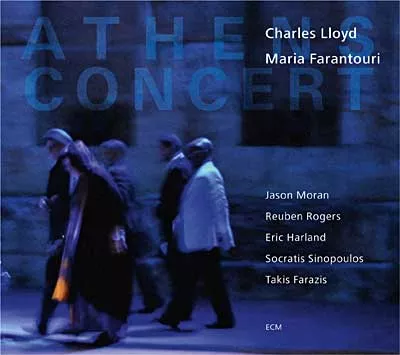
Charles Lloyd/Maria Farantouri
Athens Concert
ECM; Release date: Sept. 13, 2011
It’s been upwards of 30 years since anything like the Charles Lloyd New Quartet hit the jazz scene. Back in the early '80s, Wynton Marsalis became a superstar in the bosom of septuagenarian drummer Art Blakey and his Jazz Messengers. Now it’s a MacArthur Genius, pianist Jason Moran, sitting at the feet of 73-year-old reed master Lloyd, whose first LP as a leader on the Atlantic label dropped in the mid '60s.
There’s a big difference between Blakey-Marsalis jazz orthodoxy and the arms-open-to-the-world eclecticism of Lloyd, who plucked a young Keith Jarrett from the Blakey band decades ago to tour Europe and Russia during the LBJ Era. Add two or three guest artists to the mix and it’s hard to predict what you’ll hear from Lloyd’s New Quartet. Back in January, when I saw the band in a Jazz @ Lincoln Center concert, Moran’s wife, vocalist Alicia Hall Moran, added a cluster of Negro spirituals to a program that already had branches in Eastern mysticism, free jazz, Tin Pan Alley and the Beach Boys.
Athens Concert chronicles more than a journey to Greece in 2010. It is the distillation of Lloyd’s absorption of Greek poetry and music, abetted by the keening, unabashedly tragic vocals of Maria Farantouri. Remember Morgana King? This Athenian diva wipes the floor with her. Wave after wave of lyricism washes over us as Lloyd and Farantouri’s primal voice sing — sweetly, solemnly, and grandly. Moran is ever-present in the background, adding color and poignancy, but listen to him swing out between Farantouri’s mournful vocals on “Requiem,” a Lloyd melody dressed with Greek lyrics by Agathi Dimitrouka.
Thursday, October 13, 2011
CD Reviews CD review: Nicole Atkins & The Black Sea's "...Till Dawn"
Posted By Jeff Hahne on Thu, Oct 13, 2011 at 3:00 PM
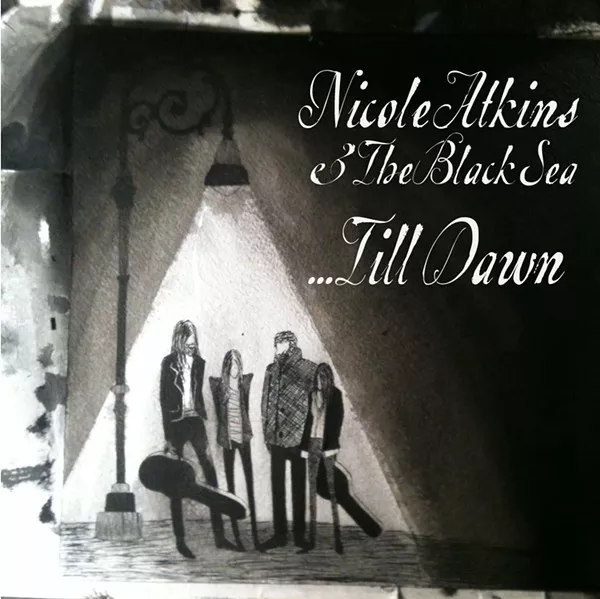
Nicole Atkins & The Black Sea
...Till Dawn
Razor & Tie; Release date: Oct. 6, 2011
Former Charlotte resident Nicole Atkins has been busy since releasing her sophomore album, Mondo Amore, in February of this year. With so much time spent on the road, a live album makes sense.
...Till Dawn, a free-for-download EP, offers five songs from Amore in all of their live glory — full of energy and Atkins' powerful vocals. Where her studio efforts have been a bit reserved in their approach, Atkins unleashes her voice on the stage.
Recorded in July in Brooklyn, N.Y., the EP starts with the slowly building "This Is For Love" followed by "You Come To Me" with Atkins sounding more like Grace Potter in her howls than the timid girl heard on her 2007 debut, Neptune City. Instead of sitting idly as the words flow by, Atkins delivers them with strength and conviction.



